How the Platform Works
The Help page addresses:
What is the platform?
How the platform works (see video above, and text below)
Reducing costs of the platform
Upgrading/ downgrading your membership
FAQs
Legal
Privacy Policy
Return Policy
WHAT IS THE PLATFORM?
The Autonomic Treatment Atlas is a cloud-based ancestral neuro-technology platform developed by Hearth Science, and more than 100 advisors. The Restorative Practices Neuro-developmental model is conceptualized as an adjunct wellness model that can be utilized in a variety of application scenarios to help individuals increase the embodied experience of safety and connection and remediate adversity. It integrates cutting-edge neurophysiology, mindful awareness, anti-racist pedagogy, deep nature connection, ancestral Lifeways, and applied cultural linguistics into an emerging evidence-based practice.
The Autonomic Treatment Atlas was created in response to data in the medical and mental health literature, supported by a decade of our own research, that suggests 4 out of 5 visits to primary care physicians are stress-related. Because all stress-related issues are, at a physiological level, issues of autonomic dys-regulation, which are mind-body issues, and because western medicine and mental health segregate the treatment of the body to one set of practitioners (e.g. physicians- general and specialist) and the mind to another (psychiatry, psychology) we created this neuro-developmental model to directly address mind-body issues of autonomic dys-regulation in an extra-clinical context. This work builds on and expands a body of applied clinical practice in Polyvagal Theory, developed by our Honorary Chair of Neurophysiology Dr. Stephen Porges PhD, and broadens and extends the conceptualization of trauma and Adverse Childhood Experiences (ACES) developed by Dr. Vincent Felitti MD and Robert Anda MD to include categories of social and ecological trauma and their repair. The Autonomic Treatment Atlas is built around a neuro-developmental model of well-being that has been field-tested over 1,000 times, and refined for more than a decade with more than 10,000 clients. Previous iterations of the curriculum were tested at Dr. Nadine Burke Harris MD MPH's clinic in San Francisco, and at a broad range of mental health, and community mental health organizations, and in and in a functional medicine clinic.
In post-intervention evaluations of the model, individuals who completed the intervention reported dramatically decreased perceived stress (on average 40%), enhanced connection (connection assets increase by 37% on average), self-regulation, and co-regulation abilities (self-care / collective care/ ecological care). Many of them reported experiencing levels of relaxation, and/or safety with self and others that they had never experienced before. In every pilot cohort of the model, participants have continued to meet after the conclusion of the course, on their own time, and of their own volition. Development of this learning platform was accelerated during COVID-19 to allow more people and organizations internationally to access the tools and resources of the model.
Hearth Science, Inc. licenses the content on this website to the Restorative Practices Alliance.
HOW THE PLATFORM WORKS
The Autonomic Treatment Atlas is designed to centralize autonomic physiology in the diagnosis and treatment of stress-related disorders, and in augmenting vitality and increasing enduring wellbeing. The engine of the platform is the My Dashboard page, which contains educational films, frameworks, and restorative practices. Each practice is a self-contained, activity-based practice that addresses some aspect of increasing connection or decreasing distress. Practices are arranged in categories: for example, Self-Care, or Connecting to Others. Categories are further divided into sub-categories. Self-Care, for example, contains Meditative, Movement, and Sensory practices, among others.
Depending on their preferences, users can navigate through the model themselves, or choose to be guided by our interactive tools, or manually through our filtering systems. If, for example, a person is looking for a 'connecting to nature' practice that takes less than 20 minutes, they can select both criteria, and see what is surfaced.
Guidance is accessible on the My Dashboard page through the ‘Start here’ section on the practices page, a brief interview-based tool that asks the user a sequence of questions, and then tailors practice recommendations based on their responses. It is also accessible through a list of category filters that includes options for enhancing connection (self-care, connecting to others, connecting to nature) and decreasing distress (symptoms). There is a search function, and a duration timer, so users can choose the length of practice useful to them. To reset the filters, once applied, click on the 'reset filters' button beneath all filters.
Once users arrive at a particular practice, they have the opportunity to engage with that specific practice. Many practices have video-based instruction. The model is designed to respond to the fact that each of us experience stress in different ways, and from different sources. Some of us, when stressed, get irritated, while other get anxious. We also all have different resources for self-care and restoration. Some people like to exercise, others to spend time with friends. Some people find restoration in nature, some with pets. Our intention is to present a broad range of relevant practices, targeted to autonomic state, situation, context, and interest.
The model is woven from practices that are related, and is internally connected across all domains. That means that if you find a practice you enjoy, you can see what practices are related to it. Related practices are listed beneath the textual descriptions. In this way, each individual can move through platform content as a choose-your-own-adventure, in ways that are highly relevant to them. We are continuously adding new content to the model.
The navigation menu on the top of the screen contains the Hi, My Name menu, where users have control over their accounts, and access to a glossary of terms. Assessments are also available in the top navigation menu.
We hope that you find the site and its resources exceptionally useful. Our objective is to provide a superior adjunct wellness tool that is broadly available internationally. We are always grateful for your feedback, both things you appreciate and constructive feedback to help us better serve your particular needs.
REDUCING COSTS OF THE PLATFORM
IF YOU OWN A BUSINESS AS A THERAPIST, COACH, OR WELLNESS PROFESSIONAL, MEMBERSHIP TO THE PLATFORM IS A DEDUCTIBLE BUSINESS EXPENSE. Membership to the platform (in the United States- if you live outside of the United States look at the tax code in your country) is a deductible business expense. According to the IRS tax code, you can deduct any amount you pay for membership dues for organizations that help with your business or provide continuing education. A Restorative Practices Learning Platform membership subscription will both help with your business and provide continuing education. IRS Publication 529. (See Education Expenses.) The IRS Publication states: You can also deduct the cost of your own education (including certain related travel) related to your trade or business. You must be able to show the education maintains or improves skills required in your trade or business.... Please confirm this with your accountant. The Restorative Practices Alliance is not an accountant, nor is it able to give accounting advice.
Generally speaking, an enterprise license that you carry on the platform to assist in the treatment of your patients/clients is also tax-deductible as office software. Please confirm this with your tax professional.
FAQs
I can't find the course I purchased. How do I access it?
Once you log in, go to the top navigation in the upper right of your screen (if on a desktop). You will see a menu item named 'My Courses'. Your classes live here.


